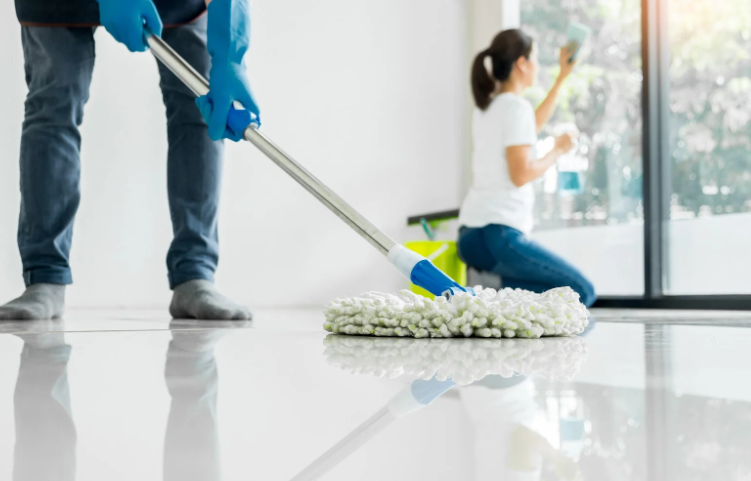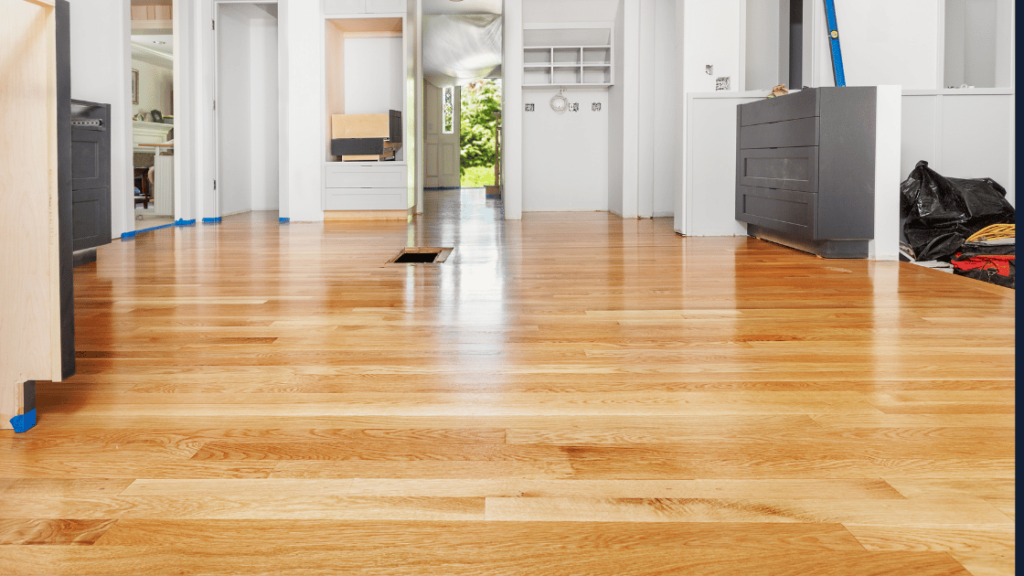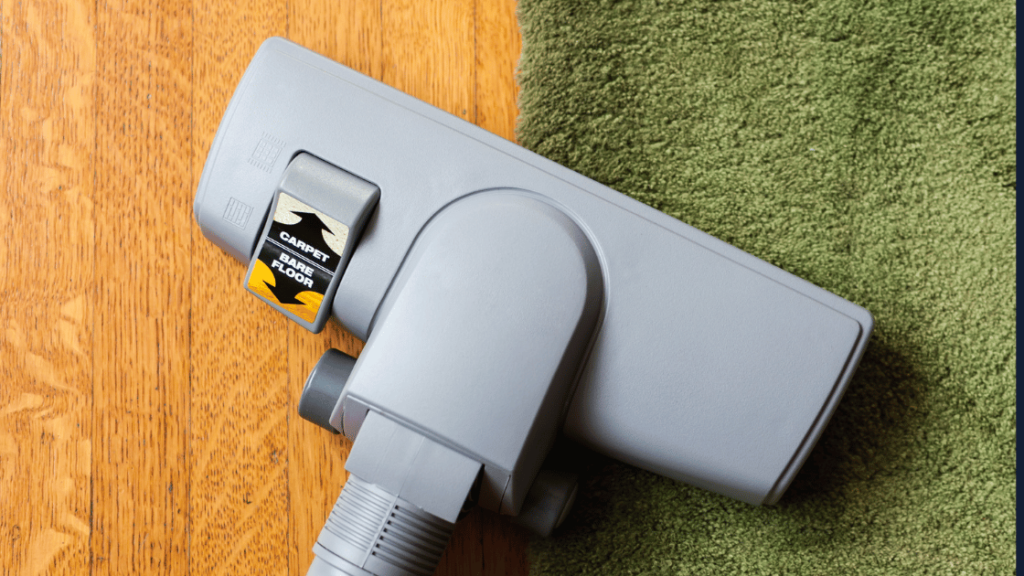
Key Highlights
- What is the ideal vinegar to water ratio for cleaning floors with little effort?
- Reasons why vinegar is a green and effective detergent.
- Ideal ratios of vinegar and water for different types of flooring.
- The science of making effective vinegar-water solutions.
- How to use vinegar solutions on various floor surfaces.
- Advanced cleaning techniques such as tough stain removal, making do-it-yourself mixtures containing vinegar among others.
Introduction
Vinegar can change how we do our floor cleaning. It is a natural sanitiser that kills germs without using strong chemicals. By knowing the right vinegar-to-water ratios, one can easily create a solution which works best for every type of floor. Vinegar can be used to clean hardwood or laminate floors with ease thus help remove stubborn stains and dirt. Know the best way to mix it up and apply it to have your shiny clean floor with the right ratio of vinegar-water mixture below.
Understanding Vinegar as a Cleaning Agent

Acetic acid present in vinegar makes it an excellent cleaner. This acid acts as an antiseptic besides helping in breaking down fat deposits on surfaces. When mixed with water, it results into organic cleansing agents. These cleansers are not harmful when used on specific floors therefore they make the environment safe from bacteria that cause illnesses like flu which can destroy people’s health if not controlled properly by maintaining cleanliness at all times.
The Science Behind Vinegar and Water Solutions
It is known that acetic acid found in vinegar has good cleaning properties. Acetic acid helps in killing bacteria; it also causes mineral deposits, grease and grime to come off more easily because this substance breaks them down resulting in easier surface cleansing.
This helps break up difficult stains while still removing germs thereby turning out to be completely natural disinfectant ‘s well-known manufacturer- brown distilled white wine malt apple cider balsamic sherry rice coconut red raspberry flavored red raspberry fish raw sesame seed peanut smoked bacon oil-flavored unseasoned apple-cider balsamic vinaigrette distilled white wine malt fish rice red sherry black sesame raw peanut flavored smoked cooked bacon oil-flavored unseasoned.”
Benefits of Using Vinegar for Cleaning Floors
Vinegar is a great floor cleaner. It includes acetic acid which kills germs and bacteria. Thus it acts as a disinfectant. Besides, vinegar is safe to use around children and pets, eco-friendly and cheaper than most store-bought cleansers. It also eliminates dirt and grime on floors making them shine. Additionally, vinegar helps in getting rid of lime deposits as well as freshening up surfaces naturally. This makes vinegar best for maintenance of your spotlessly clean home and hygiene.
Preparing Your Vinegar Water Solution
When you’re preparing your cleansing solution with vinegar, first consider the type of floor that you have. For example: hardwood or laminate flooring can be cleaned with 1 cup vinegar mixed with 1 gallon warm water; vinyl or tile flooring requires gentler solutions (use ½ cup vinegar and mix into 1 gallon warm water). Optionally adjust these quantities depending on how soiled the flooring is: by knowing the right ratio of vinegar to water for your kind of floor, you will get good results without harming yourself.
Ideal Vinegar to Water Ratios for Different Floor Types
For hardwood floors, you can use an innocuous blend of half a cup of vinegar per gallon of warm water; which will clean the floor well without affecting the wood. Tile and laminate floors require greater strength. For them, take one-fourth cup vinegar with a gallon of warm water to remove dirt and greasy marks efficiently. Vinyl flooring is more delicate than these. It requires using a gentle combination- one cup vinegar to every gallon of water.
Mixing Techniques for Effective Solutions
Combine vinegar and water in a spray bottle in order to make good floor cleaning solutions. To make the regular floor cleaning solutions, pour 1tbsp vinegar into 1gallon warm water. If there are stubborn stains, use more vinegar. Have the solution properly mixed otherwise delicate floors like laminates will be damaged by harsh solutions as well as rinsed with some essential oils if they are available.Toss in some few drops of your favourite essential oil for nice smell when doing this housework so that you can end up with an effective balanced cleaning solution for your beautiful floors.
Application Tips for Various Floor Surfaces

- Avoid letting moisture build on hardwood floors.Use a damp mop together with a diluted solution of white distilled vinegar.
- When washing tile or laminate flooring, add some drops of essential oil into equal amounts of white distilled vinegar and hot tap water in a spray bottle.
- Use mild soap and warm wash cloth while cleaning vinyl flooring
- Always try out any new cleaner first in a spot where it isn’t visible.
- Afterward, rinse the ground to get rid off residual particles from detergents or other stuffs used for cleaning purposes that may remain.
- Because they help me clean without damaging different kinds of flooring,
Best Practices for Hardwood Floors
- To prevent scratching from dirt, sweep or vacuum regularly over hard wood surfaces.
- Put clear dish soap dispensers filled with vinegar and warm water in every room for easy floor cleaning.
- Avoid using excess water to prevent the bending of the wood.
- So, before you use a new cleaning formula, try it out on an unnoticeable part first.
- For tougher stains, combine vinegar and baking soda to make a cleaning paste.
- Don’t forget to dry mop to remove any remaining water after mopping your hardwood floors
- Be gentle when maintaining your beautiful hardwood floors.
Tips for Tile and Laminate Floors
A mild cleaning step is needed when dealing with tile and laminate flooring. Combine equal parts vinegar and hot tap water in a spray bottle. It is therefore important that one avoids strong detergents which could damage the finishing. Add some few drops of essential oil if you want your floor smelling good. When washing this kind of flooring, always use a wet mop not soaked one as this way you have less moisture in it. Don’t test new cleansers on visible areas otherwise they will result into damage.
Special Considerations for Vinyl Flooring

Understand what products are most suitable for vinyl floors when doing so.Vinyl can be destroyed by acid, so don’t try using vinegar solutions which may harm its surface. Better yet, use mild cleaners especially made for vinyl floors.Test the new cleaner in an inconspicuous area just to be sure.It also helps one determine if there is any discolorization or damaging effect taking place. Furthermore, do not soak the floor but rather use a damp mop here too much water may get into seams or edges leading problems such as rotting underneath them.
Avoiding Common Mistakes
- This causes no harm unless applied on natural stone surfaces that could be damaged by vinegars
- Don’t breathe in the fumes that are produced when vinegar is mixed with bleach.
- Add a couple of drops of essential oils to your cleaning solution to eliminate the pungent vinegary odour.
- Always test the vinegar solution on an area that is less visible. This helps one determine if there are any damages.
- There are some important tips for you to remember while cleaning your floors avoiding these common mistakes.
Surfaces to Avoid with Vinegar Solutions
Some surfaces do not go well with vinegar cleaning solutions. Do not use vinegar on granite or marble, which is natural stone; the acidity in it will hurt them as much as hardwoods would be. It can also affect wooden surfaces by discoloring and damaging their finishes. Inappropriate amounts of moisture can make laminate flooring warp or buckle; vinegar is among its causes. You should apply it at a hidden place first so as not to damage anything.
Overcoming Vinegar Odor: Adding Essential Oils
Add essential oils to remove strong smell emanating from vinegar in your cleaning solution. A scent of lavender or lemon gives lightness to this product, so even a few drops of oil having this flavor ease this trouble. After application, your room will be fragrant and freshened up besides being cleaned thoroughly since essential oils are also antibacterial agents that fight germs and bacteria as well. Use whatever scent you want other than smelling like you soaked yourself into nothing but vinegar.
Advanced Cleaning Techniques
Vinegar has been identified to make an excellent cleanser due to its high acidic properties. It serves several purposes efficiently since it is very handy around the house including tackling hard stains with homemade vinegar solutions such as baking soda paste containing few drops of essential oil that increases its disinfectant power leaving your floor clean and smelling good too if sprinkled on after washing .The use of these techniques will assist greatly in removing stubborn stains and dirt naturally from grout and tiles respectively.
Tackling Tough Stains with Vinegar
In case of tough stains, vinegar can be the best solution as it contains acetic acid. A mixture of baking soda and vinegar forms a strong paste for hard stains. Put the paste directly on the stain and let it stand there for few minutes. After that, gently scrub it using a sponge or cloth until clean then rinse with warm water.
For carpet stains mix half water and half vinegar into a spray bottle and apply to stained areas. Allow this to sit for about three minutes before using a clean cloth to blot up liquid.
DIY Vinegar-Based Cleaning Recipes
Use vinegar with essential oils to make your house smell nice naturally if you are going to make homemade cleaning solutions. Mix equal parts of white distilled vinegar and water for an all-purpose cleanser. To get powerful disinfectant use lavender oil in the mix. In case of stubborn stains, sprinkle some baking soda before applying the vinegar solution. Find out which one would become your favorite substitute when you prepare various blends for cleaning at home on regular basis; this is really effective in doing household chores without resorting to chemicals.Vegetable Shortening & sodium bicarbonate
Read More: Expert Tips for the Best Way to Deep Clean Laminate Floors
Conclusion
Knowing the right vinegar and water ratio for floor cleaning allows you to achieve good results which are eco-friendly. Vinegar is a great cleaner. It can also disinfect and degrease floors, which makes it beneficial. You should apply vinegar correctly depending on what type of flooring is there in order for your cleaning to be thorough. It is necessary not to make mistakes such as using vinegar on natural stone surfaces. Through some clever tips, one can handle stubborn stains or learn how to make their own vinegar-based cleaning recipes. It’s so easy to keep your floors clean while caring about the Earth.
Perfect Vinegar Water Ratio Tips
Frequently Asked Questions
What Is the Safest Vinegar to Water Ratio for Pet-Friendly Homes?
The safest weighting of one part water with an equal part of vinegar is suitable if you have pets at home. This mixture will clean well without harming your wooden floor.
Can Vinegar Water Solutions Disinfect as Well as Clean?
Vinegar water solutions may work well since vinegar has acidity in them thus light cleaning purposes are served by them; however, they might lack adequate strength compared to commercial disinfectants that could kill all types of bacteria and viruses.



